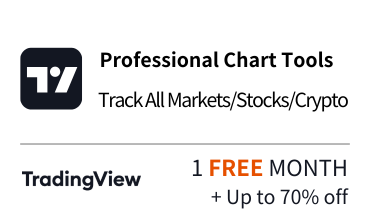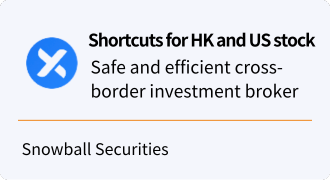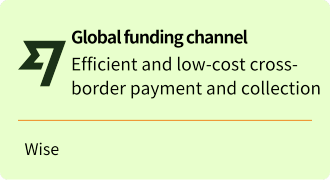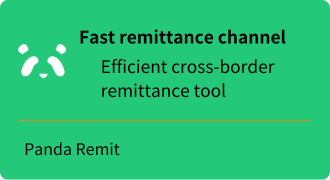Maximizing Global Investments: Navigating China's $50,000 Forex Limit
[DISCLAIMER] This article is for educational and informational purposes only and does not constitute investment advice. Readers should consult with qualified financial professionals before making any investment decisions.
As a senior quantitative trading expert and financial self-publisher, I often receive inquiries from readers about the $50,000 annual foreign exchange quota in mainland China. Behind this seemingly simple policy lie complex financial considerations and global investment opportunities. Today, let's take a deeper look at this “annual facilitation quota” and reveal some legitimate, smart ways for you to deal with it. Are you ready? Let's embark on a financial adventure that crosses borders!
Ⅰ. What is the $50,000 Foreign Exchange Line?
First, let's clarify the ins and outs of this policy. According to Articles 54 and 55 of the Current Account Foreign Exchange Business Guidelines (2020 Edition), the State Administration of Foreign Exchange (SAFE) of China implements the “Annual Facilitation Limit Management for Individual Foreign Exchange Settlement and Domestic Individual Foreign Exchange Purchase”. This means that each Chinese citizen can exchange the equivalent of $50,000 in foreign currency each year, which is often referred to as the “annual facilitation quota”.
Importantly, this 50,000 USD is not a hard limit, but a facilitation quota. It is not impossible to exceed this limit, but you will need to provide more supporting documents. Specifically:
- within the $50,000 limit, you can purchase and settle foreign exchange at a bank with just a valid ID.
- more than 50,000 dollars, then you need to provide proof of purpose documents.
Why 50,000 dollars? This figure is neither too high nor too low, just at a delicate balance point. It is sufficient to meet most people's daily international communication needs, such as traveling abroad, studying abroad, etc., and it can also control the outflow of funds to a certain extent and maintain the country's financial security.
Ⅱ. Details of the Annual Facilitation Amount
- Calculation time:
January 1 to December 31 of each year. - Quota update:
Unused quota will be automatically cleared at the end of the year and a new quota will be granted for the new year. - Quota Content:
- Annual facilitation quota of US$50,000 for foreign exchange settlement
- Annual facilitation quota of USD 50,000 for purchasing foreign exchange.
- Inquiry Method: Most banks can check the remaining quota in online banking or mobile banking.
Ⅲ. What if the quota is not enough?
For those who aspire to make larger overseas investments, $50,000 may seem like a stretch. Don't worry, let's take a look at some of the legitimate ways to “break the ice”:
- Joint Family Line:
If you're married, don't forget that your spouse has a $50,000 line of credit. That's $100,000 for two people, which gives you more room to maneuver. - Split Redemption:
Remember, the $50,000 is an annual amount that doesn't have to be used all at once. You can choose a favorable time to redeem it in batches based on exchange rate fluctuations and may be able to get a better exchange rate. - Excess Foreign Exchange Purchase:
If your needs do exceed 50,000 USD, you can go to the bank counter. You only need to provide supporting documents for the real purpose, and there is no limit on the amount. - Legal cross-border investment channels:
In recent years, China has introduced a variety of cross-border investment channels, such as QDII funds and Hong Kong Stock Connect. These channels allow you to participate in overseas investment without directly exchanging foreign exchange. - Special projects do not take up quota:
Certain special projects such as immigration property transfer, inheritance property transfer, employee stock ownership plan, etc. do not take up the annual facilitation quota, and only relevant supporting documents are required.
Ⅳ. Compliance Risk Tips
In exploring these strategies, I must emphasize that compliance is the number one priority. The State Administration of Foreign Exchange (SAFE) has “six no-no's”, which include:
- no false declarations of personal information about foreign exchange purchases
- not to provide inaccurate supporting materials
- not lending your own facilitation quota to assist others in purchasing foreign currencies
- not to borrow the facilitation quota of others to implement the split purchase of foreign exchange
- shall not be used for overseas purchase of real estate, securities investment, purchase of life insurance and investment return dividend insurance and other capital projects that have not yet been liberalized
- shall not be involved in money laundering, tax evasion, underground money transactions and other illegal activities
Violation of these provisions may be included in the “attention list”, and even face administrative penalties. So, my advice is: I'd rather make less money than touch the legal red line.
Ⅴ. How to maximize the use of limited credit?
Since the quota is limited, it is important to maximize your earnings. Here are some suggestions:
- Prioritize high-quality assets:
Within the limited quota, prioritize the allocation of high-quality overseas assets. For example, leading U.S. tech stocks or global ETFs, which typically provide better long-term returns. - Diversification:
Don't put all your eggs in one basket. Utilize a limited amount to build a small, well-diversified portfolio of global assets, including stocks, bonds, and even some alternative assets. - Watch exchange rates:
When exchanging foreign currency, pay close attention to the trend of the RMB exchange rate. Choosing a relatively favorable time to exchange may save you a lot of cost. - Long-term perspective:
As the amount is limited, it is more important to adopt a long-term investment strategy. Frequent trading will not only increase costs, but may also result in missed opportunities due to short-term market fluctuations. - Use leverage? Caution is required:
Some investors may consider using leverage to scale up their investments. While this may lead to higher returns, it comes with increased risk. If you decide to use leverage, be sure to exercise strict risk control.
Ⅵ. Notes on Special Circumstances
- Remittance related to study abroad:
If you need to remit tuition fees or living expenses for study abroad, you can provide documents proving the purpose of study abroad (e.g. acceptance letter, proof of tuition fees, etc.) at the bank. These documents are not required if the amount is within the facilitated amount. - Restrictions on carrying cash out of the country:
- If the amount of foreign currency cash brought in is less than the equivalent of US$5,000, there is no need to apply for a License for Carrying Foreign Currency Out of the Country.
- If the amount of foreign currency banknotes you are carrying is more than US$5,000 and up to US$10,000, you are required to apply for a Permit to Carry Foreign Exchange Out of China from the bank.
- Restrictions on cash withdrawals abroad:
- For each natural year, the total cash withdrawal amount of each person's bank card under his/her name (including supplementary cards) shall not exceed the equivalent of 100,000 RMB.
- The daily cash withdrawal amount per card shall not exceed the equivalent of RMB 10,000.
Ⅶ. Future Prospects
With the development of the economy and society, I expect that the quota of US$50,000 may still be maintained in the medium and long term in the future foreign exchange control policy.
Against this backdrop, it is becoming increasingly important for Chinese investors to enhance their global asset allocation capabilities. This includes not only understanding overseas markets, but also how to optimize their investment strategies under the existing policy framework.
Ⅷ. Conclusion
In the face of the US$50,000 foreign exchange limit, Chinese investors need to both comply with the rules and learn to deal with them intelligently. Remember, investment is a marathon, not a sprint. Within the limited amount, through careful planning and execution, you can still participate in global asset allocation and achieve solid wealth growth.
My advice is:
- focus on legitimate cross-border investment channels, such as QDII funds, which may be an effective way for you to participate in the global market.
- adopt a diversification strategy to build a balanced global asset portfolio within the limited quota.
- For excess demand, prepare relevant supporting documents and process through regular banking channels.
- Always pay attention to policy changes and maintain a learning attitude to continuously improve your international financial knowledge.
Looking ahead, as China's role in the global economy becomes increasingly important, foreign exchange policies may be gradually relaxed. But until then, mastering how to maximize the benefits of your global investments within the existing framework will be key to your success in the international financial arena.
Readers, how do you feel about this $50,000 limit? Do you have any unique strategies to deal with it? Feel free to share your thoughts and experiences in the comments section. Let's learn together and find opportunities in the global financial market together!
(Note: The content of this article is for reference only, the specific policy may be subject to change, please refer to the State Administration of Foreign Exchange and the bank's latest regulations shall prevail.)







